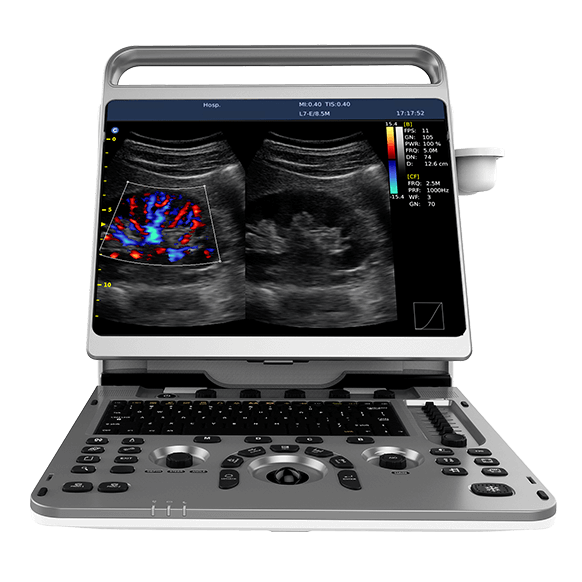Choosing the right portable ultrasound machine is a crucial decision that requires careful consideration. With a wide range of options available in the market, it is important to assess your specific needs and prioritize the features that align with your requirements. In this article, we will provide a comprehensive guide on how to choose the right portable ultrasound machine, considering factors such as image quality, applications, budget, and user-friendliness.
Consider the primary application for which you need the portable ultrasound machine. Different machines excel in specific areas such as obstetrics, cardiology, musculoskeletal imaging, or veterinary medicine. Identify your specialty and ensure that the machine you choose offers the necessary transducers and imaging modes for your specific requirements.
Image quality is a crucial factor in portable ultrasound machines. Look for machines that offer high-resolution imaging, advanced imaging technologies (such as speckle reduction and harmonic imaging), and the ability to adjust settings for optimal image clarity. Evaluate sample images and consult with experts or colleagues to assess the image quality of different machines.

Consider the portability and ergonomics of the machine, especially if you need to move it frequently or use it in different locations. Look for lightweight machines with compact designs that are easy to carry and maneuver. Consider the battery life and charging options to ensure uninterrupted use in various settings.
A user-friendly interface and intuitive workflow can significantly enhance the usability of a portable ultrasound machine. Look for machines with clear menus, easy navigation, and customizable settings to suit your preferences. Consider whether the machine offers presets or protocols for different examinations, saving time and reducing user error.
Check if the portable ultrasound has seamless connectivity options. Some machines offer wireless connectivity, allowing you to transfer images and data to other devices or integrate with electronic medical record (EMR) systems. Compatibility with smartphones, tablets, or laptops can provide additional convenience for image review and analysis.
Set a budget for your portable ultrasound machine purchase. Prices can vary significantly depending on the brand, features, and image quality. Determine the features that are essential for your practice and prioritize your budget accordingly. It may be worth investing in a higher-priced machine if it aligns closely with your needs and offers superior performance and durability.
Read user reviews and seek recommendations from colleagues or experts who have experience with different portable ultrasound machines. Their insights can provide valuable information on performance, reliability, customer support, and overall user satisfaction. Consider joining online forums or attending industry conferences to gather more insights from professionals in the field.
Ensure that the manufacturer provides adequate training and technical support for the portable ultrasound machine. Proper training is crucial to maximize the machine's capabilities and ensure accurate interpretation of images. Evaluate the availability of training resources, such as online tutorials, user manuals, and on-site training options.
Choosing the right portable ultrasound machine involves evaluating factors such as image quality, applications, portability, user interface, connectivity, budget, and user reviews. By assessing your specific needs, consulting with experts, and considering these factors, you can make an informed decision that aligns with your requirements and enhances your clinical practice. Remember to prioritize features that are essential for your specialty and seek a balance between performance and budget to find the ideal portable ultrasound machine for your needs.
More details please contact CHISON Medical
Comments
Please Join Us to post.
0